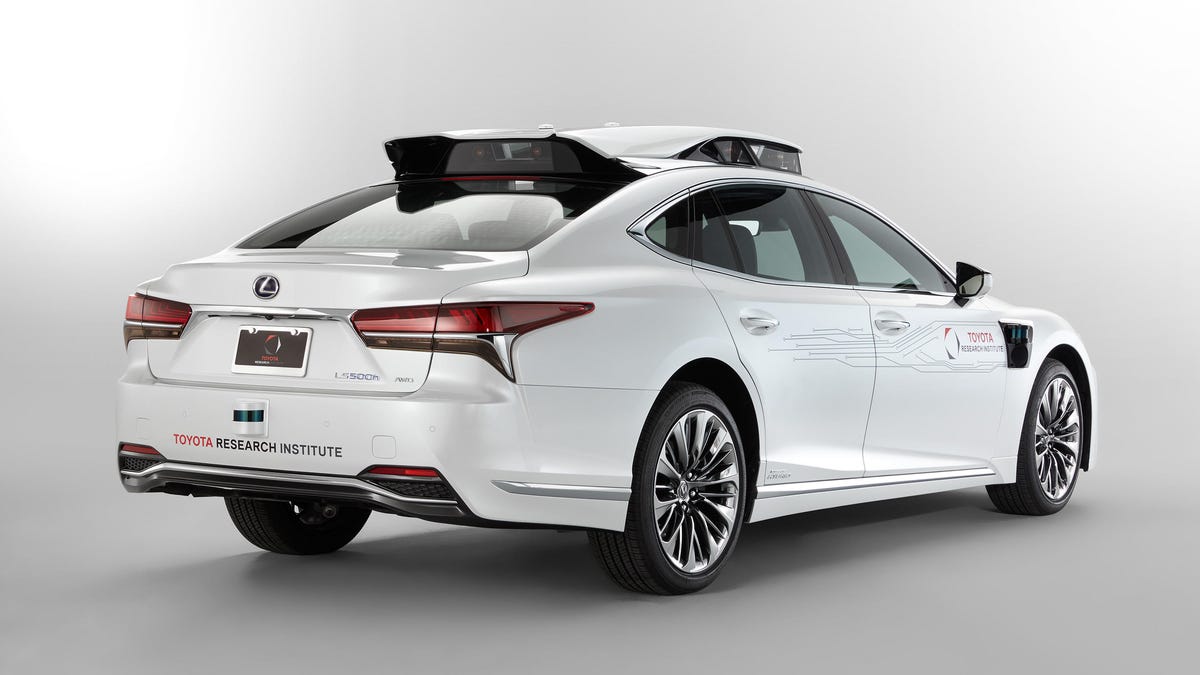Lexus LS 500h heads to CES as Toyota's new self-driving research car
Lexus' full-size hybrid sedan joins Toyota Research Institute's autonomous test fleet this spring.

The Toyota Research Institute (TRI) is getting a brand-new autonomous driving development car, and we'll see it firsthand at CES next week. Called TRI-P4, the new Lexus LS 500h-based development vehicle will join TRI's autonomous test fleet this spring.
TRI-P4 promises to be a huge upgrade over Toyota's Platform 3.0 test vehicle, which introduced a number of updates at CES 2018, but was still based on a two-generations-old Lexus LS 600hL. The P4 car "benefits from Lexus ' new generation of chassis and steering control technology, which provides greater agility and allows for more responsive and smoother maneuvers during automated driving," according to a Toyota statement released Thursday.
Toyota's autonomous research and development focuses on two systems, called Guardian and Chauffeur. Guardian is designed "to amplify human performance behind the wheel, not replace it," Ryan Eustice, TRI's senior vice president of automated driving, said in a statement. Chauffeur development, meanwhile, "is focused on full autonomy, where the human is essentially removed from the driving equation, either completely in all environments, or within a restricted driving domain," Eustice said.
The P4 car fits two additional cameras as well as a pair of imaging sensors mounted at the front and rear. The car's radar system has been optimized to improve the field of view, specifically for close-range imaging. Toyota says the lidar system carries over from the Platform 3.0 car, though it's been modified to fit into the new LS 500h's design.
Speaking of which, the P4's design was handled by CALTY Design Research, in Ann Arbor, Michigan.
Toyota says P4 has greater computing power and the capability for faster learning. It can process sensor inputs faster, and therefore react more quickly to the outside world. The Lexus' hybrid battery now serves as the main power source for the computer, which is situated in the trunk, arranged vertically against the rear seat. This means there's actual usable trunk space, unlike with the P3 car.
Toyota's Prototype Development Center in York Township, Michigan, will transform stock Lexus LS 500h sedans into P4 test cars beginning this spring. Following the initial car's debut at CES next week, it will be on display at the 2019 Detroit Auto Show in mid-January.

